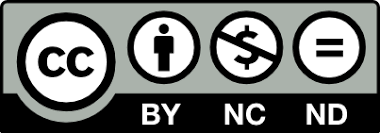GEORGIA ON THE PATH TO EU INTEGRATION: TRANSLATION AND TERMINOLOGY-RELATED CHALLENGES OF THE GEORGIAN LANGUAGE IN THE CONTEXT OF LEGISLATIVE APPROXIMATION
DOI:
https://doi.org/10.52340/PUTK.2024.2346-8149.09.03Keywords:
harmonization of legal terms and concepts, legal translation, legislative approximationAbstract
This paper reviews the process of legal translation in Georgian governmental organizations and the impact of new terminology adopted as part of legislative approximation. It also highlights the problem associated with the lack of equivalence of legal phrases and inconsistency in the use of terms. The examples of faulty translations show the impact on the quality of legal translation and, accordingly, the need to improve professional skills. In conclusion, the focus is placed on the lack of publications with instructions, guidelines, and tips for translators of EU legislation and on the need to develop legal translation programmes to prepare graduates of linguistic faculties for dynamic and high-tech jobs when Georgia becomes an EU Member State.
Full Text (PDF)
References
Byrne, J. (2007). Caveat translator: Understanding the legal consequences of errors in professional translation. Journal of Specialised Translation (Vol. 7), 2–24.
Cosmai, D. (2014). The Language of Europe. Multilingualism and Translation in the EU Institutions: Practice, Problems and Perspectives. Brussels: Université de Bruxelles, 34, 42.
Kardava, E. (2018). The Reform of the Labour Legislation of Georgia within the Context of European Integration and the Requirements of the Association Agreement. (PhD thesis, TSU), 161-167.
Ramos, F. (2020). Facing translation errors in international organizations: what corrigenda reveal about correction processes and their implications for translation quality. Comparative Legilinguistics (Vol. 41). http://dx.doi.org/10.14746/cl.2020.41.5
Šarčević, S. (1997). New Approach to Legal Translation, 271.
Parliament of Georgia. (1997). Resolution on the Harmonisation of the Legislation of Georgia with the Legislation of the European Union.
Government of Georgia. (2014). Decree №37 on the Approval of the Technical Regulations “Frequency of Testing Various Categories of Vehicles”.
Partnership and Cooperation Agreement (PCA). (1996).
European Neighbourhood Policy (ENP). (2004).
European Master’s in Translation, Competence Framework 2022. https://commission.europa.eu/system/files/2022-11/emt_competence_fwk_2022_en.pdf
A comprehensive English-Georgian Online Dictionary https://dictionary.ge/en/
IATE (Interactive Terminology for Europe). https://iate.europa.eu/search/standard
Orthographic Dictionary of the Georgian Language. https://www.ice.ge/liv/liv/ortograf.php
Oxford Dictionary of Law. https://www.oxfordreference.com/display/10.1093/acref/9780192897497.001.0001/acref-












